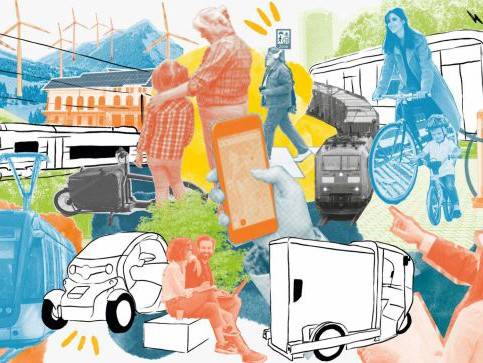
Sustainable Mobility in Rural Areas based on Autonomous Vehicles and Mobility On-Demand
Ziele/Ideen
In the past century, private automobiles have shaped personal mobility by enabling fast and convenient point-to-point travel. However, this development is having a serious effect on the sustainable nature of our transport system. To transform personal transportation to a sustainable mobility system, two fields of research are currently receiving considerable attention: autonomous vehicles and mobility on-demand. So far, the focus of this research has been on implementing autonomous vehicles and mobility on-demand in urban environments, with far too little attention paid to rural areas. In my opinion, this is a mistake. Especially for a country like Austria, where 65% of the population live in a rural environment and traffic planers face different challenges than in urban areas. Thus, the purpose of this master thesis was to evaluate the potential of autonomous vehicles applied in a mobility on-demand concept in Lower Austria, in order to provide sustainable mobility in rural areas.
Kurzbeschreibung
In this thesis a new mobility model for Lower Austria was developed, with the aim to provide sustainable mobility also in rural areas. In order to develop this model two emerging trends in transportation were analysed. Autonomous vehicles and mobility on-demand promise to eliminate the inefficiencies, that have been established in our transport system due to the prominent use of private automobiles. In addition, a mobility study conducted in Lower Austria was examined to identify the travel patterns and needs of the population. Therefore, the developed model is based on the findings and evaluated in respect of its impact on the economy, environment and society.
Resultate
The results of this thesis indicate that the developed model has the potential to change personal mobility and to mitigate the negative effects personal mobility has on the environment today. Furthermore, the findings suggest that it can increase people’s mobility, without creating more privately owned automobiles, leading to a positive impact on society and the economy. To conclude, the findings of this study have a number of important implications for future research.





